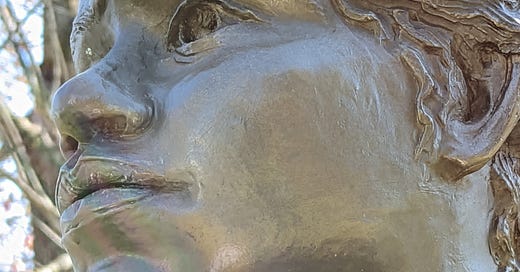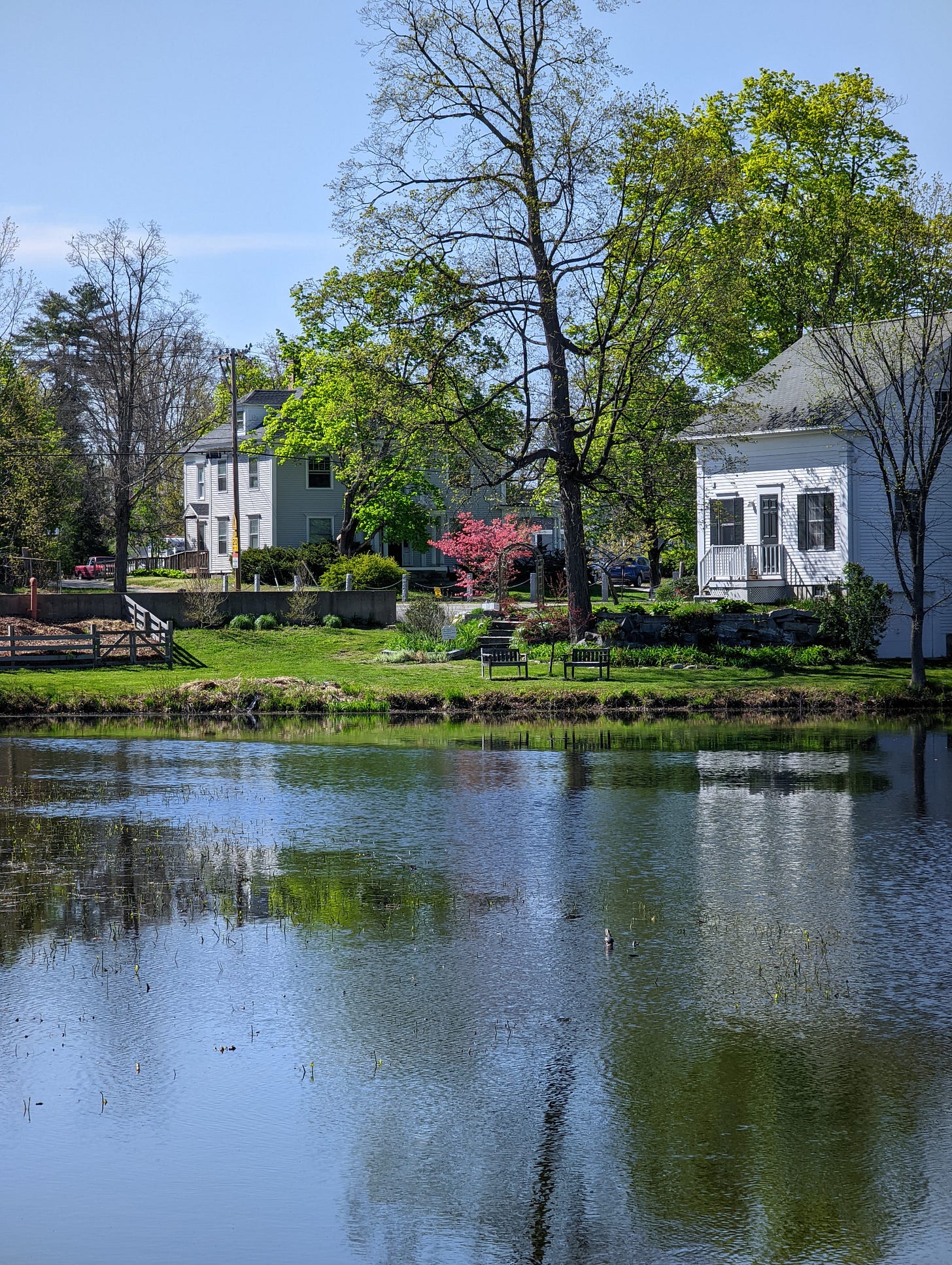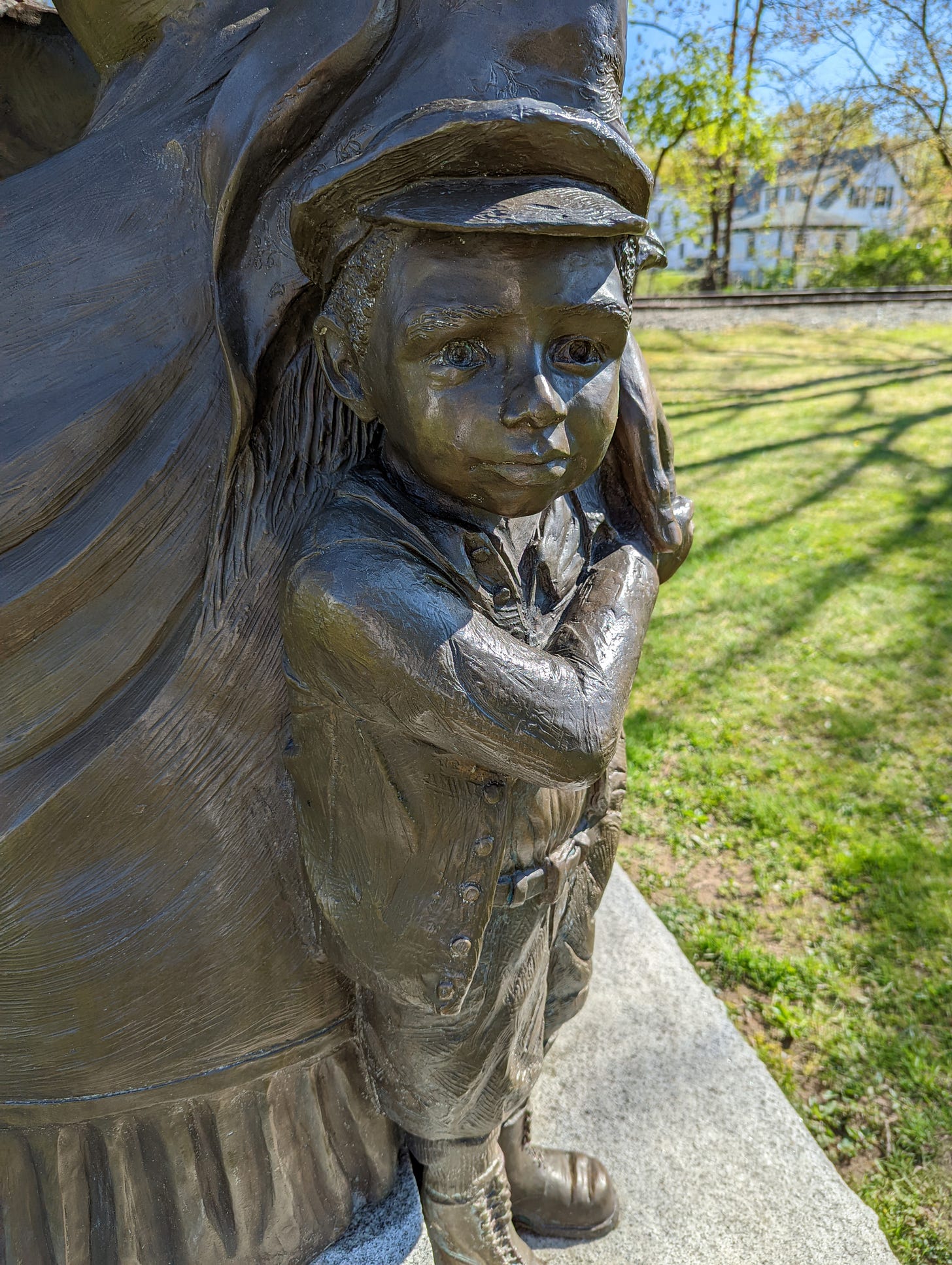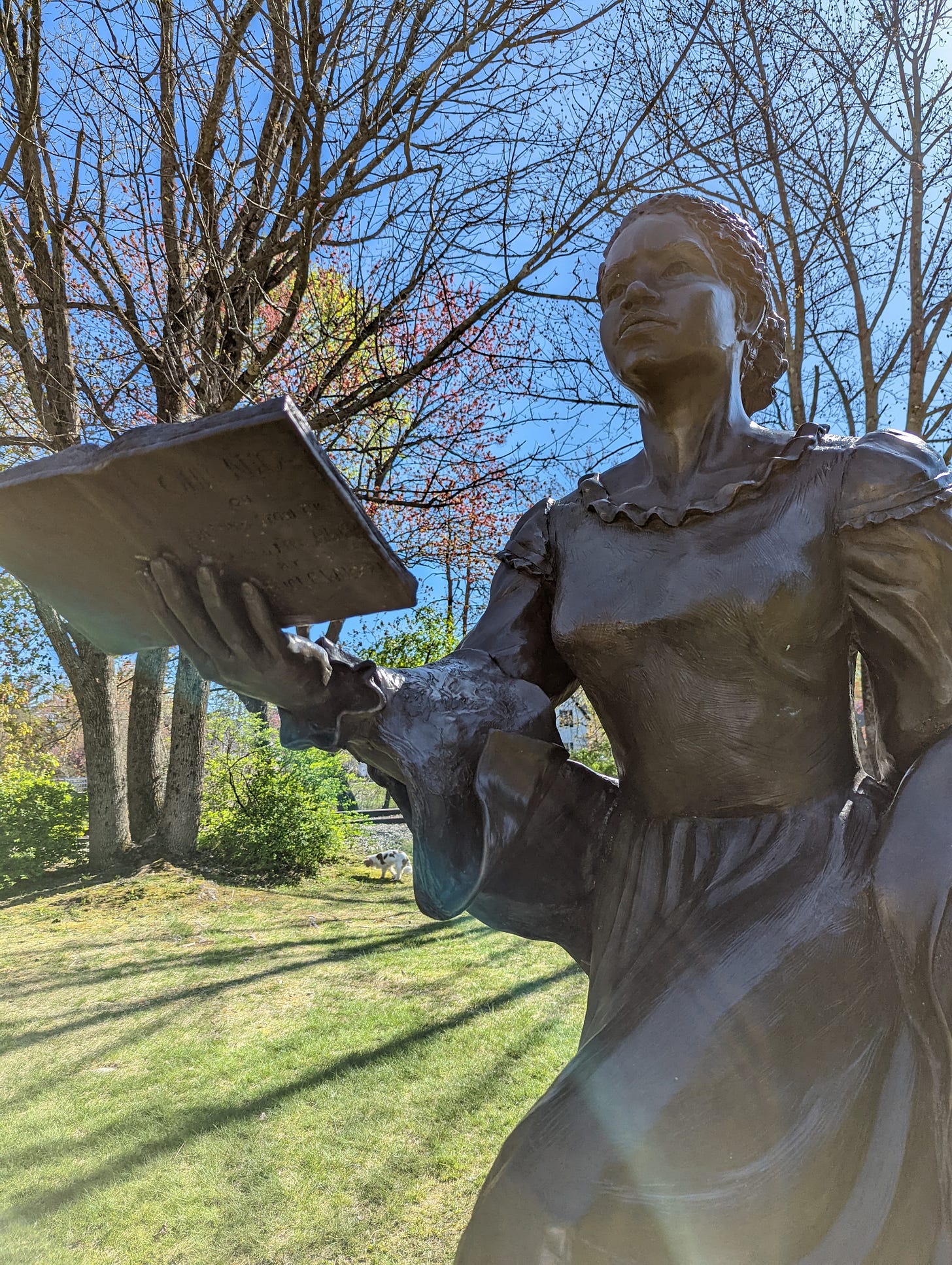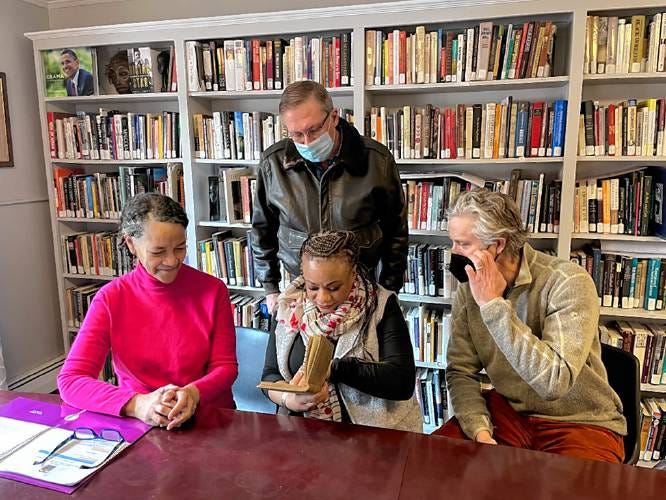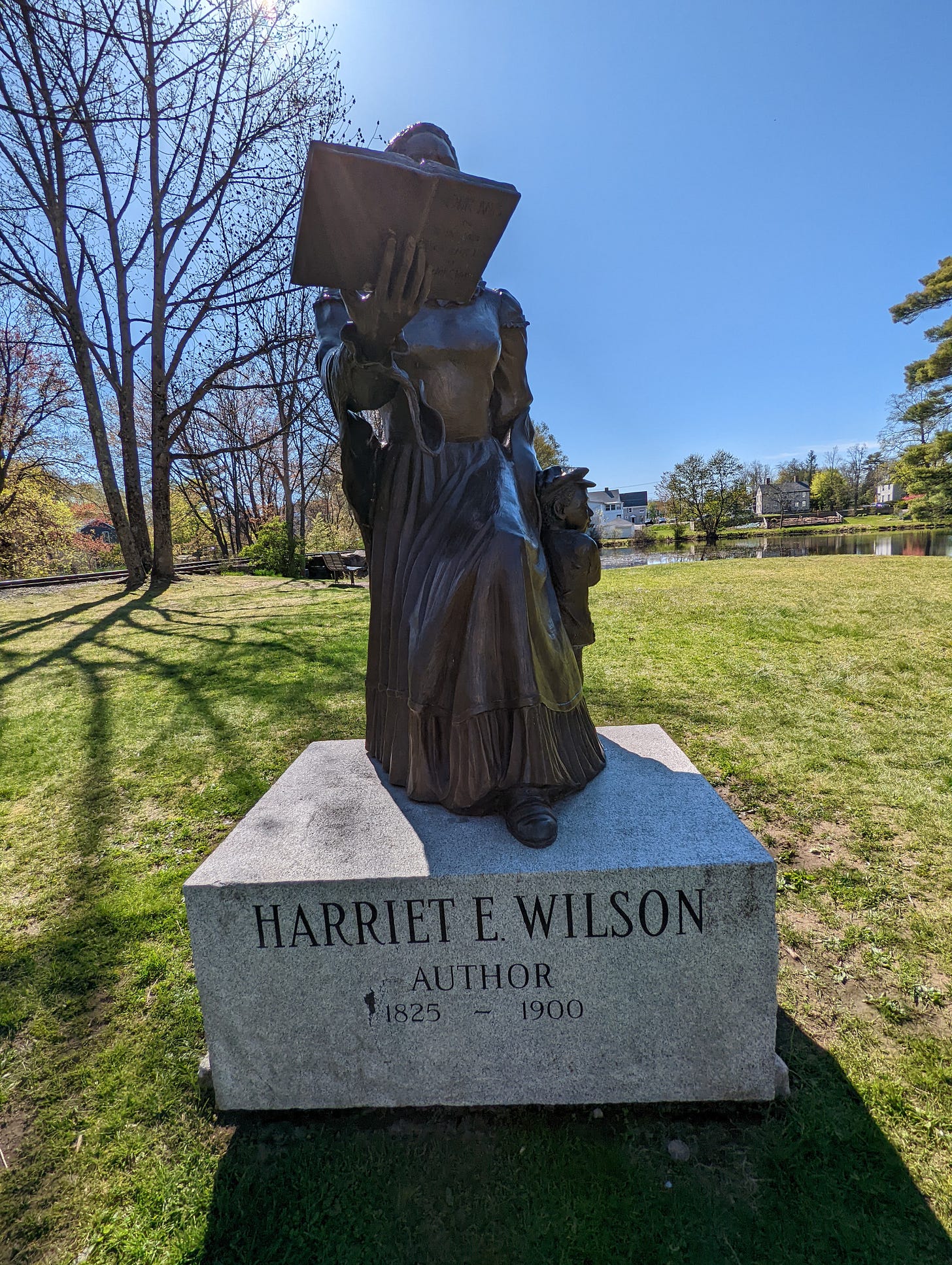I love really old books and buy one occasionally. They smell so good, but it’s not a hobby I can afford to feed often! The oldest book I have is an 1893 copy of the book-length poem Evangeline by Henry Wadsworth Longfellow from 1847.
This post is about an old book, published in 1859 and then lost to history for over a hundred years. The book is tied to Milford, New Hampshire, a town where I lived for thirteen years. I visited Milford last week to see Bicentennial Park and its memorial bronze statue.
A true collector of old books, Henry Louis Gates Jr. found the lost book I’m writing about. Gates teaches African American studies at Harvard University. He has extensively studied African American literature and history, written or co-written over twenty-four books, and produced over twenty-one documentary films. His current project is the PBS documentary series Finding Your Roots. Since the 1970s, Gates has collected old books written by African Americans or old books about their history.
In 1981, Gates found a first edition of an old book titled Our Nig from 1859. He didn’t want to read it at first because he thought it was a plantation fantasy. These were novels written by Southern whites that portrayed slaves as childlike, content, and loving their masters.
But a year after he bought it, he finished a project and picked up the book to have a look. Just by reading the preface he was startled and convinced that the book had been written by a black woman. Gates knew that this book was not identified on any of the extensive bibliographies of books written by blacks in America. The earliest known book by a black woman in America was from 1892. No one had found the 1859 Our Nig!
The author had used a pseudonym. She called herself Our Nig. Gates and his research assistants got busy trying to find out who wrote this book and where it came from. Through clues in the book and fascinating historical detective work in New Hampshire and Massachusetts archives such as birth, death and marriage records, census reports, town histories, and more, Gates was able to uncover the fact that the author of Our Nig was Harriet Wilson, born a free black named Harriet Adams in Milford, New Hampshire, in 1827 or 1828.
Much of the novel is autobiographical. Harriet’s mother indentured her as a child to a white family in Massachusetts where the mother and one daughter brutally abused Harriet to the point of her health failing by age eighteen. Finally released from her indenture, she married Thomas Wilson who abandoned her when she was pregnant. In dire poverty she gave her son, George Mason Wilson, into a foster family and wrote this novel to earn money and be able to retrieve him.
In the Preface to her book she wrote, “Deserted by kindred, disabled by failing health, I am forced to some experiment which shall aid me in maintaining myself and child without extinguishing this feeble life.” And she called on people to help her by buying a copy. Unfortunately, five months and twenty-four days after the publication of Our Nig, there appeared in the Farmer’s Cabinet newspaper in Amherst, New Hampshire, dated February 29, 1860, this obituary: “In Milford, 13th inst [ant], George Mason, only son of H.E. Wilson, aged 7 yrs. and 2 mos.”
The plot of Our Nig is extraordinary in the fact that it chronicles the relationship of a Northern white middle class woman to a black indentured servant. It was not about Southern plantation slavery, but about racism in the North. Harriet subtitled the book “Sketches from the life of a free black, in a two-story white house, North : showing that slavery's shadows fall even there.” Northern abolitionists may have suppressed the book because it made the North look bad in race relations while they were trying to focus on the evils of Southern slaveholders. Whatever the history, there are now only ten known first editions of the book.
In January this year, one of those ten books made its way back to New Hampshire. A librarian in California discovered the book in a safe when she was settling her late husband’s estate in 2021. She found the Black Heritage Trail of New Hampshire (BHTNH) in Portsmouth, New Hampshire, and hand delivered the book to them where it was authenticated.
BHTNH has the book stored in a safe place while some restoration is being done to it. They plan to unveil a black heritage trail marker in Milford’s Bicentennial Park this summer to honor Harriet Wilson, author of Our Nig, the first African-American novel published in the United States. I hope to be there!
You can browse the 1983 edition of Our Nig from Henry Louis Gates Jr. with his brilliant introduction on the Internet Archive.

